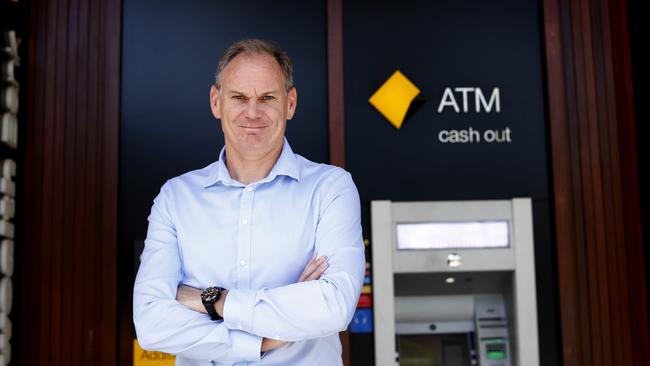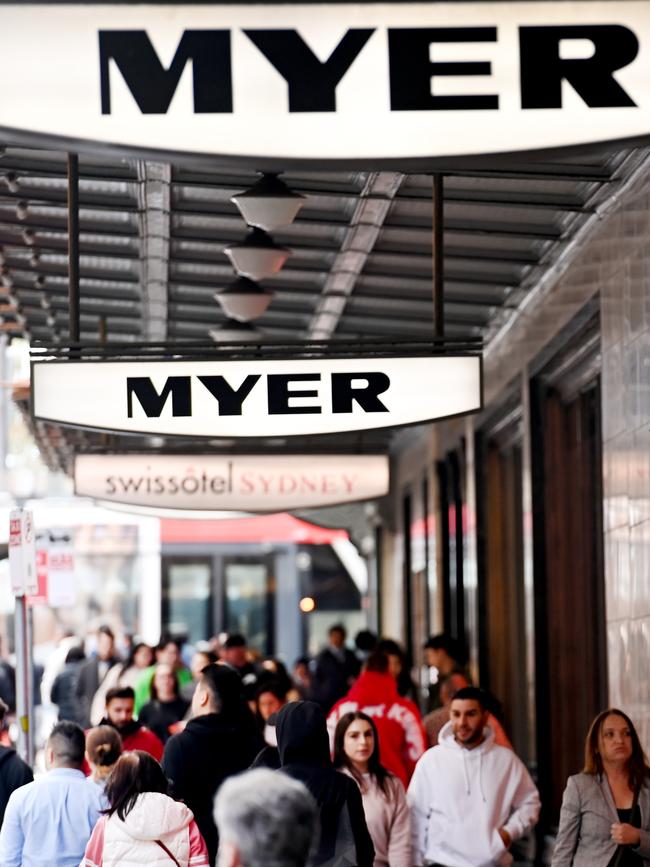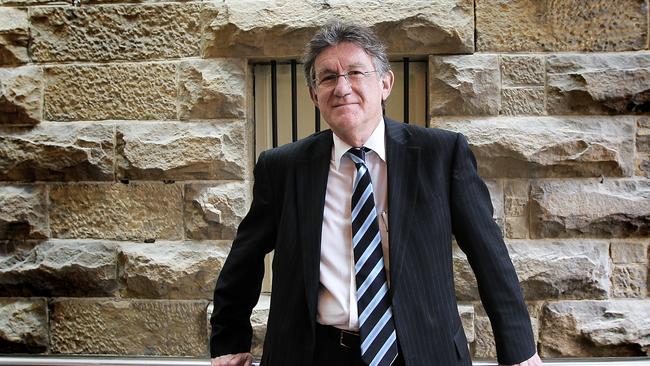CBA says business spending strong, defying economic uncertainty and interest rate hikes
Australian businesses are looking beyond a potential ‘short, sharp contraction’ of the economy, spending up big to get ready for when it rebounds.
Australian businesses are looking through economic uncertainty and spending up after putting capital investment programs on hold during the past two-and-a-half pandemic-plagued years.
Despite facing rising costs from labour and raw materials, a record number of businesses invested in new equipment in the year to June 30, with spending remaining strong in July, according to Australia’s biggest bank.
The Commonwealth Bank data will come as a relief to the Albanese government and policymakers, calming fears the RBA’s most aggressive interest rate hikes in 30 years will crash the economy and spark a surge in unemployment.
CBA chief executive Matt Comyn expects a “short, sharp contraction” in the economy before it rebounds, and the bank’s business lending boss Mike Vacy-Lyle says businesses are getting ready.
Mr Vacy-Lyle still expects defaults, particularly in the construction and discretionary retail sectors, but said overall Australian businesses were resilient. He said many companies were even beginning to overcome pandemic-fuelled supply chain problems, buying from Australian rather than overseas suppliers and keeping more money in the local economy.
“Businesses are continuing to adapt their strategies in response to the changing operating landscape and ongoing uncertainties in the domestic and global environment,” Mr Vacy-Lyle said.
“Many have increased their investment in productive capacity to strengthen their businesses and are taking positive action to overcome issues including supply chain disruptions by refining procurement processes and asset management.
“This led to significant investment in new vehicles, equipment and technologies in the 2022 financial year.”

NAB’s monthly business survey for July was also upbeat. Confidence returned to above average levels, following a steady decline in recent months. Trading conditions, profitability and employment all improved, despite inflation and rising interest rates “clouding the outlook”.
The positive mood comes as consumers are yet to pull back spending in the wake of the RBA’s blockbuster rate hikes. The Australian Bureau of Statistics’ newly created household spending indicator – which uses bank transactions to gain a glimpse into consumer spending – shows spending increased 10.2 per cent in June against the same month last year. Australians continued to spend on eating out and at department stores, with fashion, clothing and homewares purchases all rising.
While consumer demand remains strong, buoying companies and profit margins, it is opposing the efforts of the RBA – which has hiked the official cash rate from 0.1 to 1.85 per cent – to curb inflation.
The RBA’s four rate rises mean a borrower with a $1m loan must pay an extra $1000 a month in interest compared to April, reducing the amount they can spend on discretionary items and cooling demand.
But UBS strategist Richard Schellbach expected Australian companies to “again impress with their ability to defend profit margins”. Some of Australia’s biggest retailers, including JB-HiFi, Super Retail and Beacon Lighting, will report their latest financial results this week.
“An impressive takeaway from the February results season was the ability of companies to maintain profit margins against such an unprecedented array of input cost, labour and supply chain pressures.
“More recently, we saw both net margins and EBIT margins impress in the just completed US second-quarter reporting season,” Mr Schellbach said.

“A big reason why profit margins are being defended, even with cost pressures, is the strength still being seen from end demand.
“Probably the best barometer of this strength comes from the labour market, where the unemployment rate in Australia currently sits at 3.5 per cent, its lowest since 1974.”
NAB chief economist Alan Oster said strong demand allowed firms to pass higher costs on to customers, with overall product prices growing 2.7 per cent and retail prices growing 3.3 per cent – both at new highs.
“Inflation and rising interest rates are clouding the outlook, and there are growing concerns about the global economy, but businesses seem to have a fairly positive outlook at the moment,” Mr Oster said.
“While some of the real-time data we look at is showing signs of softening, there are no signs of that in the survey with demand at a really high level. Importantly, the strength is showing up across the board in terms of industries and across the country. With businesses running at close to full capacity and unemployment at 3.5 per cent, materials and labour are becoming ever more expensive, driving prices higher. That cycle is likely to continue until demand starts to soften more materially, which we expect to occur over the coming months as higher interest rates begin to weigh on household budgets.”

For CBA – which added $33bn to its business lending book in the past year – strong consumer demand fuelled loans for assets, including forklifts (+49 per cent), trailers (+37 per cent), cranes (+26 per cent) and trucks (+13 per cent).
Demand for financing agricultural equipment also soared, reflecting record production following Australia’s third consecutive bumper crop.
CBA general manager of asset finance Chris Moldrich said businesses were restructuring operating cost and debt, adapting to new business strategies, and investing in new vehicles, equipment or factories.
Mr Moldrich said a CBA survey of 807 firms confirmed business sentiment across Australia remained steady and positive despite ongoing concerns, including rising costs and the potential effect on profit margins, capital expenditure and employee growth. “As expected, larger businesses were the most likely to invest more and expect growth in return. Smaller businesses had the most concern about increased operating costs,” Mr Moldrich said.
“The impact of rising costs as the world adjusts to life and business post-lockdown was seen as the major challenge for business over the next 12 months. This included concerns about rising overheads (33 per cent), climbing interest rates (25 per cent), increasing transport and distribution costs (22 per cent) and escalating supplier costs (21 per cent). (But) many businesses are looking to grow and need finance for asset upgrades.”








To join the conversation, please log in. Don't have an account? Register
Join the conversation, you are commenting as Logout